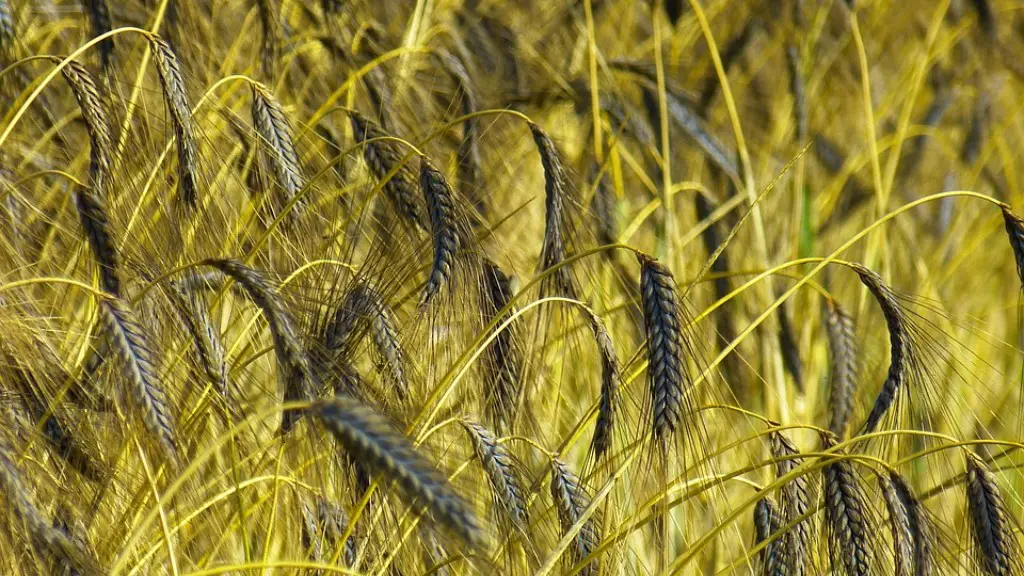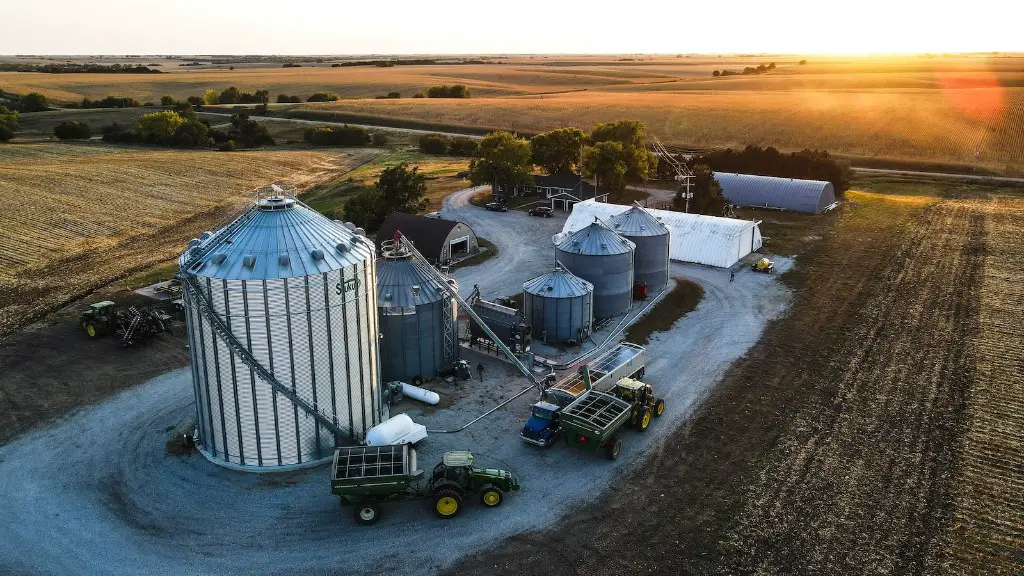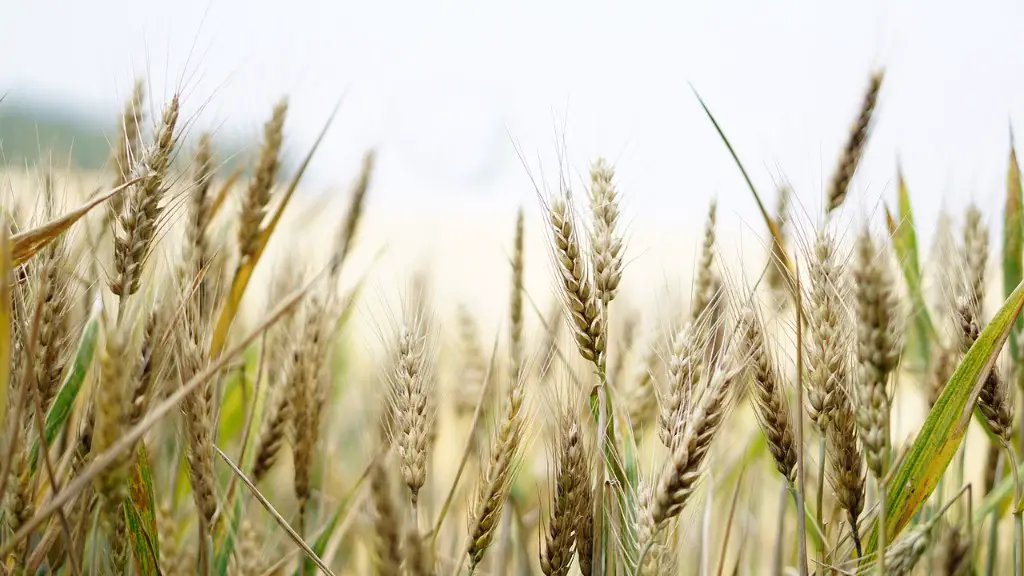Q: What is FPO in agriculture?
A: Farming Producer Organizations (FPOs) are farmer-owned and controlled business entities. They are registered under the Companies Act, 2013, and are promoted by State Governments and various other development organizations.
FPOs enable small and marginal farmers to pool their land and other resources and benefit from economies of scale in production, procurement, marketing and other agricultural services. FPOs also help to increase the bargaining power of farmers and enable them to get better prices for their produce. In addition, FPOs provide a platform for collective action on issues such as crop insurance, subsidies and other government schemes.
The main objectives of FPOs are to:
– Improve the livelihoods of small and marginal farmers
– Enhance the competitiveness of Indian agriculture
– Foster inclusive and sustainable growth in the agricultural sector
FPO stands for Farmer Producer Organisation. It is an organisation of farmers that works to promote and support the interests of small and marginal farmers. FPOs provide a platform for farmers to pool their resources and sell their produce directly to buyers, bypassing the middlemen. They also provide services such as input procurement, technical assistance, and linkages to markets and credit. FPOs help improve the bargaining power of small farmers and enable them to get a better price for their produce.
What is FPO and benefits?
FPO’s play an important role in the agricultural industry and provide farmers with a wide range of services. Technical assistance, marketing, processing, and other facets of crop inputs are all provided through Farmers Producers Organisations. This allows farmers to have access to information and resources that they may not otherwise have. FPO’s help to level the playing field and provide farmers with the tools they need to be successful.
An FPO is a Farmer Producer Organization. The concept behind Farmer Producer Organizations is that farmers, who are the producers of agricultural products, can form groups To facilitate this process, the Small Farmers’ Agribusiness Consortium (SFAC) was mandated by Department of Agriculture and Cooperation, Ministry of Agriculture, Govt. of India in 2006.
FPOs are expected to help small and marginal farmers by giving them a better bargaining power, improving their access to markets and providing them with better information about prices, technology, etc. FPOs are also expected to help in the development of value-added products and services.
What is farmers FPOs
FPO stands for Farmers Producers Organisation. It is an organisation of farmer-producers that provide support to small farmers with end-to-end services covering almost all aspects of cultivation from inputs, technical services to processing and marketing.
FPO stands for Farmer Producer Organization and it is a group of farmers that work together in order to increase their income and get better prices for their products. They do this by providing services and activities such as supplying quality production inputs like seeds, fertilizers, and pesticides at wholesale rates. This helps farmers to produce better quality products which they can then sell at higher prices. This ultimately leads to higher incomes for farmers and helps to improve their standard of living.
How many farmers can form FPO?
A group of farmers with a minimum of 11 members can form an FPO as per the rules.
Dilutive FPOs are typically used by companies that are looking to raise capital, while non-dilutive FPOs are typically used by companies that are looking to provide liquidity to shareholders.
What is FPO example?
FPOs are a type of public offering in which a company sells shares to the public for the first time. In an FPO, a company raises money by selling part of its ownership to investors. This is different from an IPO, where a company sells shares to the public for the first time.
FPOs are usually done by companies that are already listed on other exchanges, but there are a few exceptions. For example, Tata Steel Ltd, which is listed on the Bombay Stock Exchange, raised money through an FPO in 2007.
Power Finance Corporation Ltd, which is listed on the National Stock Exchange, raised money through an FPO in 2008.
Engineers India Ltd, which is listed on the Bombay Stock Exchange, raised money through an FPO in 2009.
Power Grid Corporation of India, which is listed on the Bombay Stock Exchange, raised money through an FPO in 2010.
TheFarmers’ Producer Companies (FPCs) and Farmers’ Producers Organizations (FPOs) are the two types of organizations being promoted by the government to help the farmers. The FPCs are companies registered under the Companies Act, 2013 and the FPCs are registered under the Cooperatives Societies Act.
The members and stakeholder of the FPCs/FPOs are farmers, milk producers, fishermen, weavers, rural artisans, craftsmen and institutions of primary producers. The productive land under an FPC/FPO shall be around 500 to 4000 ha. The minimum number of farmer producers in FPC is 500.
The main objectives of FPC/FPO are to promote the efficient production of goods and services by the farmers and to help the farmers to get better prices for their produce. The FPC/FPO will also help in the marketing of the agricultural produce and in the supply of inputs to the farmers.
How are FPOs financed
Equity financing is when a company sells shares of ownership to raise capital. This is often done through a public offering on a stock exchange, but can also be done through private placement.
Credit capital is when a company raises capital by borrowing money. This can be done through a variety of methods, such as issuing corporate bonds or taking out loans from banks or other financial institutions.
Debt financing is when a company raises capital by selling debt instruments, such as bonds or promissory notes. This is often done through a public offering, but can also be done through private placement.
Maharashtra is one of the leading states in India in terms of agriculture marketing reform. In 1963, the Maharashtra Agricultural Produce Marketing Act was introduced, which allowed licensees to procure produce directly from farmers and use it for further processing, export, or trading. This has made it easier for farmers to sell their produce and has resulted in better prices for them.
Is FPO profitable?
FPOs are less profitable than IPOs because, at this stage, the company is in the stabilization phase.
This means that the company is not growing as rapidly as it was during the early stages of its development. Consequently, there is less opportunity for investors to make a profit from investing in the company.
The lack of collateral assets with FPOs makes it difficult for them to get financing from financial institutions. This puts a lot of pressure on FPOs to have a well-capitalized business. Managing a business with such small capital can be a very difficult task.
Is FPO tax free
The government has been promoting the formation and growth of Farmer Producer Organizations (FPOs) in India since 2011. Support has been provided through institutions such as the National Bank for Agriculture and Rural Development (NABARD), the Small Farmers’ Agribusiness Consortium (SFAC), and various NGOs and state governments.
In the Budget for 2018-19, the government announced a number of measures to support FPOs, including a five-year tax exemption. These measures are expected to help FPOs become stronger and more sustainable, thereby benefiting small and marginal farmers across India.
The internet source lisbdnetcom tells us that the average US farmer feeds 155 people, up from 26 people in 1960 A good part of that increase in efficiency relates to labor-saving technology. In other words, farmers are now able to produce more food with fewer people. This is due to a number of factors, such as the increased use of machinery, improved irrigation systems, and better crop planning.
Can a farmer sell his produce directly?
Farm direct marketing is a great way to sell products directly to customers. Often, the farmer receives a price similar to what the grocery store charges. This method of marketing is more entrepreneurial or business-like than wholesale marketing.
An FPO is a great way for a company to raise additional capital while also giving existing shareholders an opportunity to buy more shares in the company. It can also help to increase the liquidity of the shares.
Conclusion
Farmers’ Producer Organizations (FPOs) are farmer-owned and controlled business enterprises, which are registered under the Companies Act, 2013. The FPO will help farmers to collectively undertake activities like production, processing, branding, packaging, agri-marketing, farm insurance, etc. and get better returns.
The Future Farmers of America (FFA) is a national youth organization that promotes and supports agricultural education and leadership. Founded in 1928, the FFA now has more than 610,000 members in 7,665 chapters across the United States. The FFA mission is “to make a positive difference in the lives of students by developing their potential for premier leadership, personal growth and career success through agricultural education.”





